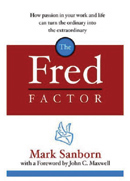Posted: 9/14/07
Around the State
• Tony Martin, professor of Greek, New Testament and world religions at the University of Mary Hardin-Baylor, will speak at a ministers’ forum at noon Sept. 20. His topic will be “Biblical Ideas Relating to the Issue of Suffering in Human Exper-ience.” The presentation will be held in Shelton Auditorium. For more information, call (254) 295-4606.
• East Texas Baptist University will hold a preview event for prospective students and their families Sept. 29. There is no cost to attend, and visitors will receive information about academic programs, financial aid, campus life, ministry opportunities, tours of the campus and tickets to the ETBU football game. For more information, call (800) 804-ETBU.
|
| Seven Howard Payne University students traveled to India in culmination of a class that taught them how to plan the logistics of a mission trip to a foreign country. They learned everything from securing insurance to visas. They also learned the importance of learning about the culture of the people there. While in India, the students participated in worship in both a house church and in a congregational setting, as well as witnessing Hindu worship of the Ganges River. Pictured in front of the Taj Mahal are, front row from left, Naphtali Renshaw, Allison White and Jamie Coston; back row from left, Travis Garcia, Jared Renshaw, Skyler Smith, Tim Heinze and Professor Rusty Wheelington. |
• Baylor University will hold the Parchman Endowed Lectures Oct. 2-4. Ben Witherington, a professor of New Testament interpretation at Asbury Theological Seminary, will deliver the lectures, scheduled for 9:30 a.m. each day. For more information, call (254) 710-7347.
• Kelvin Kelley has been named to the faculty of Logsdon Theological Seminary, and also has been appointed assistant to Hardin-Simmons University President Craig Turner.
• Mark Tew has been named vice president for academic affairs at Howard Payne University.
• Rhonda Dyer has been named executive director of STARRY, the Round Rock-based emergency shelter, counseling and foster care arm of Children at Heart Ministries, a Baptist General Convention of Texas agency.
Anniversaries
• Kevin Moore, fifth, as pastor of Beulah Church in Millsap, Sept. 8.
• Mark Martin, 30th, as pastor of Epting Memorial Church in Denison, Sept. 14.
• Hampton Road Church in DeSoto, 60th, Sept. 23. Testimonies from charter members and special music will highlight the service. Jerry Raines is pastor.
• First Church in Sandia, 100th, Sept. 30. A meal and afternoon song service will follow morning worship. Jimmy Hisel is pastor.
• Lane Park, 50th in ministry, Oct. 6. He has served 41 years as a pastor or ministerial staff member and nine years with Marketplace Chaplains USA as a corporate chaplain. He is a member of First Church in Plano.
• First Church in Teague, 130th, Oct. 14. James Semple will be the guest speaker, and former Music Minister Josh Rhodes will lead worship in the morning service. There also will be a reunion of the 1970s youth choir directed by Jerry Morris. A catered meal will follow the morning service. A time of testimony is planned for the afternoon. For more information, call (254) 739-2353. Darrel Beggs is pastor.
• First Church in San Marcos, 150th, Oct. 20-21. Saturday will include a barbecue meal, basketball and horseshoe tournaments, and a historical exhibit beginning at 3 p.m. Sunday will include a worship celebration and building dedication beginning at 10 a.m., followed by a meal. Reservations are required for the Sunday meal. For more information or to make reservations, call (512) 392-3377. Mark Newton is pastor.
• First Church in Wolfe City, 125th, Oct. 20-21. Festivities will begin at 5:30 p.m. Saturday with a pot luck dinner followed by music, testimonies and fellowship. A meal will follow the Sunday morning service. The meals are provided, but an indication of attendance is requested by Oct. 12 by calling (903) 496-2560. Kevin Mitchell is pastor.
• Allen Heights Church in Allen, 25th, Oct. 21. Leon Aduddell will be the guest preacher, and former Minister of Music Mark Stewart will lead the music. A barbecue lunch will follow the morning service. For more information or to make lunch reservations, call (972) 727-9136. Byron Jackson is pastor.
• First Church in Smiley, 125th, Oct. 27-28. A song service will be held Saturday at 6:30 p.m. A time line with pictures, memorabilia and other church artifacts will be on display. Sunday morning’s service will feature testimonies and special music. A lunch and afternoon service will follow. People with items to include in the timeline or who need other information can call (830) 587-6133. Marvin Miles is pastor.
Deaths
• Lowell Rollins, 73, July 26 in Huntsville. After beginning his ministry in music in Louisiana, he served at First Church in Atlanta, Birchman Avenue Church in Fort Worth, Calvary Church in Beaumont, First Church in Port Arthur, and Cockrell Hill Church in Dallas. He also was a member of The Century Men and the Singing Men of Texas. He is survived by his wife of 50 years, Arlene; daughters, Terri Marroquin and Marili Lindstrom; son, Lowell Jr.; sister, Rose Marie Wallace; and 10 grandchildren.
• Abraham Enrriques, 70, Aug. 1 in Corpus Christi. After retiring from the U.S. Army after 31 years, he was pastor of El Redentor Multicultural Church in Kingsville, First Baptist Church in Robstown and Primera Iglesia in Robstown. He was active in the Baptist General Convention of Texas, serving as president of Varones Bautistas, and later on the Executive Board of the BGCT. In addition, he was a member of the Robstown Ministerial Alliance and moderator of both Corpus Christi Association and Coastal Bend Association. He is survived by his wife of 50 years, Adela; son, Albert; daughters, Annette, Anna and Amy Enrriques; brothers, Arturo Sr., Abel, Alfredo and Arturo Jr.; sisters, Alicia Gonzales, Asenet Quintero and Anita Esquivel; seven grandchildren; and one great-grandchild.
• John Vaughan, 72, Aug. 28 in Marshall. He was a professor of English at East Texas Baptist University from 1967 until his retirement in 2002. He had been a member of First Church in Marshall since 1973. He is survived by his brothers, Tommy and Harold.
• Dot Pettit, 86, Sept. 10 in Black Mountain, N.C. She and her husband were attending a reunion for emeritus missionaries at Ridgecrest Conference Center when a train struck the car she was driving. She and her first husband, Marlin Hicks, were appointed as missionaries in 1950 and served in western South America until his death in 1957. She was transferred to the Baptist Spanish Publishing House in El Paso in 1958 and continued to serve until her retirement in 1985. She is survived by her husband, Max.
Revivals
• Bell Avenue Church, Amarillo; Sept. 30-Oct. 3; evangelist, Paul Cherry; music, The Cherry Family; pastor, Danny Logan.
• Belmore Church, San Angelo; Sept. 30-Oct. 3; evangelist, Jerry Griffin; music, The Mike Anderson Family; pastor, Toby Irwin.
News of religion, faith, missions, Bible study and Christian ministry among Baptist churches, in Texas, the BGCT, the nation and around the world.




